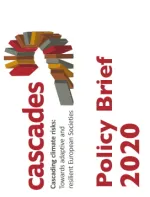Promoting policy coherence: Lessons learned in EU development cooperation

CASCADES Policy Brief September 2020
Policy coherence for development, or PCD, refers to the need for multiple policies from different sectors to work in unison rather than in opposition to each other, if international development is to be achieved. In Europe, the argument for PCD was based on the recognition that EU efforts on development cooperation were often contradicted or undermined by other EU policies, both internal as much as external, to the extent that the EU was effectively taking back with one hand what it had given with the other. In some severe cases, the EU was even taking back more than it gave. Thus for instance, while on the one hand the EU was funding development projects to support agriculture production projects in Africa, on the other, its trade policies and domestic agriculture subsidy policies in Europe were encouraging the dumping of cheap subsidised food on African markets thereby undercutting local producers competing in the same markets. The impact of European development aid was therefore being negated by its trade and agriculture policies.